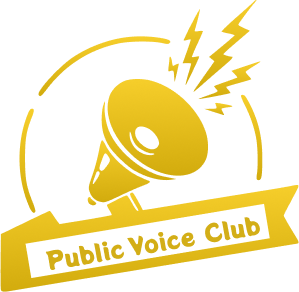Artificial Intelligence (AI) has revolutionized the way marketers approach their strategies in recent years. With the ability to analyze vast amounts of data and provide valuable insights, AI tools have become essential for any modern marketer. In this blog post, we will explore some of the top AI tools that marketers can leverage in 2025 to drive their campaigns to new heights.
1. Chatbots
Chatbots have become increasingly popular in recent years as a way to provide instant customer support and engagement. AI-powered chatbots can be programmed to respond to customer inquiries in a conversational manner, providing personalized recommendations and solutions. By incorporating chatbots into their websites or social media platforms, marketers can improve customer satisfaction and drive conversions.
2. Predictive Analytics
Predictive analytics uses AI algorithms to analyze past data and predict future outcomes. Marketers can use predictive analytics to forecast customer behavior, identify trends, and optimize their marketing strategies. By understanding what drives customer actions and preferences, marketers can tailor their campaigns to effectively target their audience and increase ROI.
3. Personalization Tools
Personalization tools use AI to create personalized experiences for customers based on their preferences and behaviors. By segmenting customers and delivering relevant content, marketers can increase engagement and conversions. Personalization tools can also help marketers create targeted campaigns that resonate with their audience, leading to higher conversion rates and customer loyalty.
4. Natural Language Processing (NLP)
Natural Language Processing (NLP) is a branch of AI that focuses on the interaction between humans and computers using natural language. Marketers can use NLP to analyze and understand customer feedback, reviews, and social media conversations. By using sentiment analysis and language processing, marketers can gain valuable insights into customer sentiments and preferences, allowing them to tailor their messaging and offerings accordingly.
5. Marketing Automation
Marketing automation platforms use AI to streamline marketing processes, such as campaign management, lead scoring, and email marketing. By automating repetitive tasks and workflows, marketers can save time and resources, allowing them to focus on more strategic initiatives. With AI-powered marketing automation, marketers can improve efficiency and generate higher ROI from their campaigns.
6. Content Creation Tools
AI-powered content creation tools can help marketers generate high-quality and engaging content at scale. These tools use algorithms to analyze data, identify trends, and create personalized content that resonates with the target audience. By leveraging AI for content creation, marketers can save time and resources while delivering relevant and engaging content to their audience.
7. Visual Recognition Tools
Visual recognition tools use AI to analyze images and videos, allowing marketers to understand visual content and trends. Marketers can use visual recognition tools to identify products, logos, and objects in social media posts or videos, enabling them to track brand mentions and engagement. By leveraging visual recognition tools, marketers can gain valuable insights into consumer behavior and preferences.
8. Social Media Monitoring Tools
Social media monitoring tools use AI algorithms to track and analyze social media conversations and trends. Marketers can use these tools to monitor brand mentions, sentiment analysis, and competitive intelligence. By understanding how their brand is perceived on social media, marketers can respond to customer feedback, engage with their audience, and optimize their social media strategy for maximum impact.
9. SEO Optimization Tools
AI-powered SEO optimization tools help marketers enhance their website’s search engine rankings and visibility. These tools analyze keywords, content quality, and backlink profiles to identify optimization opportunities. By using AI for SEO, marketers can improve their website’s organic traffic, increase search engine visibility, and drive targeted traffic to their site.
10. Voice Search Optimization
Voice search optimization tools use AI to optimize content for voice search queries, such as those made through virtual assistants like Siri or Alexa. Marketers can use voice search optimization tools to create content that is optimized for conversational queries and long-tail keywords. By adapting their SEO strategies for voice search, marketers can capture a larger audience and improve their website’s visibility in voice search results.
As AI continues to evolve and become more sophisticated, marketers must stay ahead of the curve by leveraging the latest AI tools and technologies. By incorporating AI into their marketing strategies, marketers can drive more personalized campaigns, optimize their ROI, and engage with their audience on a deeper level. The top AI tools outlined in this blog post are just a glimpse of the possibilities that AI can offer to marketers in 2025 and beyond.
